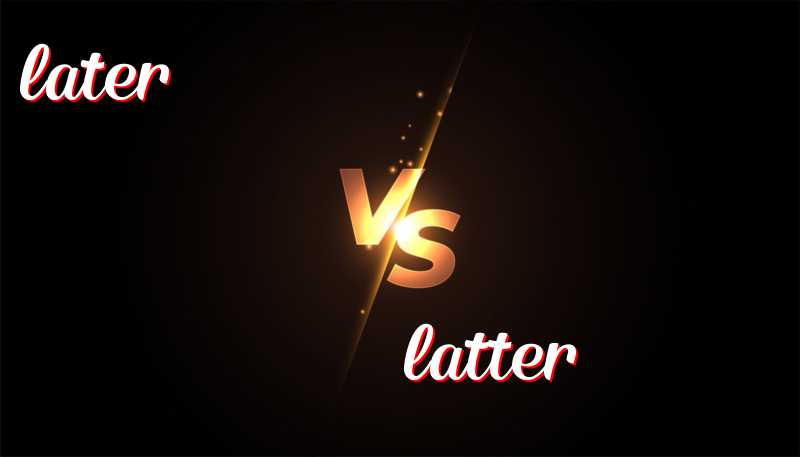The Difference Between Later and Latter
Later vs. Latter
In English, the words “later” and “latter” are often confused due to their similar spelling and pronunciation. Let’s explore the difference between these two words.
History:
– “Later” originated from the Old English word “læt,” which means slow or tardy.
– “Latter” comes from the comparative form of Middle English word “late,” meaning occurring near or at the end.
How to use them:
– Later refers to the time following the current moment or after an earlier time.
– Latter refers to the second of two things mentioned.
Trick to Remember the Difference:
– Later has the word “late” in it, which can help you remember its association with time.
Examples using “later”:
1. I will call you later when I finish my work.
2. We can go to the movies later tonight.
3. Don’t eat all the cookies now; save some for later.
4. The meeting has been rescheduled for later this week.
5. Can you pick me up later from the train station?
Examples using “latter”:
1. Would you prefer tea or coffee? I like the latter.
2. He was offered two positions, one in marketing and the latter in sales.
3. John and Peter are coming to the party; I can’t remember which of the latter is allergic to nuts.
4. The book had two options for the ending; I preferred the latter.
5. There are two parts to the exam, and the latter is more challenging.
Summary of Usage:
– Use later when referring to time or sequence.
– Use latter when comparing two things, with the latter being the second one mentioned.

Leave a Reply
You must be logged in to post a comment.